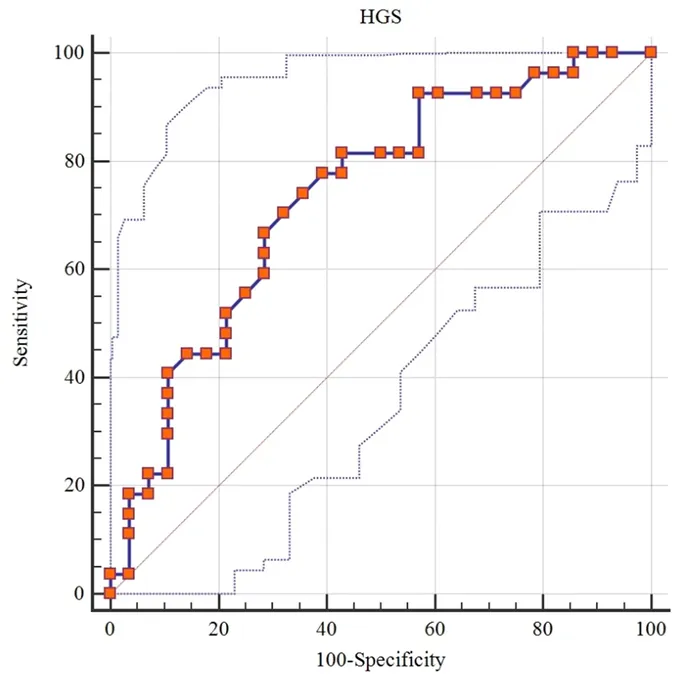
10 Silent Threats of Vitamin B12 Deficiency You Must Know!
2025-04-01
Author: Arjun
Are you ignoring the shocking signs of Vitamin B12 deficiency? If so, it could be time to pay attention!
Vitamin B12, scientifically known as cobalamin, is a vital water-soluble vitamin that plays a crucial role in various bodily functions. Not only is it essential for energy production, but the consequences of a deficiency can be severe and often go unnoticed. Here are ten concerning symptoms that highlight its importance to your health.
1. Numbness and Tingling
Low B12 levels can lead to nerve damage, creating a tingling sensation or feeling of pins and needles in your extremities. This issue may escalate if left untreated, leading to significant nerve dysfunction.
2. Memory Loss and Brain Fog
If you're finding it hard to concentrate, are forgetful, or often feel mentally cloudy, it could be related to your B12 levels. Prolonged deficiency can increase the risk of more serious cognitive impairments including memory loss and even dementia in severe cases.
3. Heart Palpitations
Anemia caused by low B12 can lead to an irregular heartbeat, breathlessness, dizziness, and palpitations, all due to reduced oxygen circulation in the body.
4. Fatigue and Weakness
Constantly feeling tired despite getting adequate rest? This may be linked to insufficient red blood cell production due to low B12, which limits oxygen supply to your body's tissues, resulting in chronic fatigue and weakness.
5. Pale or Jaundiced Skin
A lack of B12 can lead to a type of anemia that causes your skin to appear unusually pale or yellowish. The deficiency hampers your body's ability to deliver oxygen effectively, leaving your skin looking tired and lifeless.
6. Glossitis and Mouth Ulcers
Early inadequate B12 can manifest as glossitis (a swollen, inflamed tongue) and painful mouth ulcers, which may hinder your ability to eat comfortably or speak without pain.
7. Balance and Coordination Issues
As the deficiency progresses, nerve damage may develop to such an extent that it impairs your movement, leading to difficulty walking, increased falls, and problems with balance—symptoms that are often wrongly attributed to aging.
8. Mood Changes
Vitamin B12 plays a role in the synthesis of neurotransmitters, and its deficiency may lead to mood swings, depression, or increased anxiety, affecting overall mental health.
9. Visual Disturbances
In severe cases, B12 deficiency can also impact vision. The optic nerve’s deterioration can lead to blurred or disturbed vision, signaling a serious problem that needs urgent attention.
10. Immune System Compromise
A lack of B12 may weaken your immune response, making you more susceptible to infections and other diseases, highlighting the vitamin’s role in maintaining overall health.
**Who's at Risk and How to Prevent It**: Certain groups face a higher risk of vitamin B12 deficiency, including vegetarians, vegans, older adults, and individuals with specific digestive health issues. Ensuring adequate intake through diet—such as dairy products, eggs, fish, and fortified cereals—or supplementation is essential for maintaining optimal B12 levels. If you suspect you may be deficient, consult with a healthcare provider for appropriate testing and guidance. Don’t ignore these silent threats to your health!



 Brasil (PT)
Brasil (PT)
 Canada (EN)
Canada (EN)
 Chile (ES)
Chile (ES)
 Česko (CS)
Česko (CS)
 대한민국 (KO)
대한민국 (KO)
 España (ES)
España (ES)
 France (FR)
France (FR)
 Hong Kong (EN)
Hong Kong (EN)
 Italia (IT)
Italia (IT)
 日本 (JA)
日本 (JA)
 Magyarország (HU)
Magyarország (HU)
 Norge (NO)
Norge (NO)
 Polska (PL)
Polska (PL)
 Schweiz (DE)
Schweiz (DE)
 Singapore (EN)
Singapore (EN)
 Sverige (SV)
Sverige (SV)
 Suomi (FI)
Suomi (FI)
 Türkiye (TR)
Türkiye (TR)
 الإمارات العربية المتحدة (AR)
الإمارات العربية المتحدة (AR)